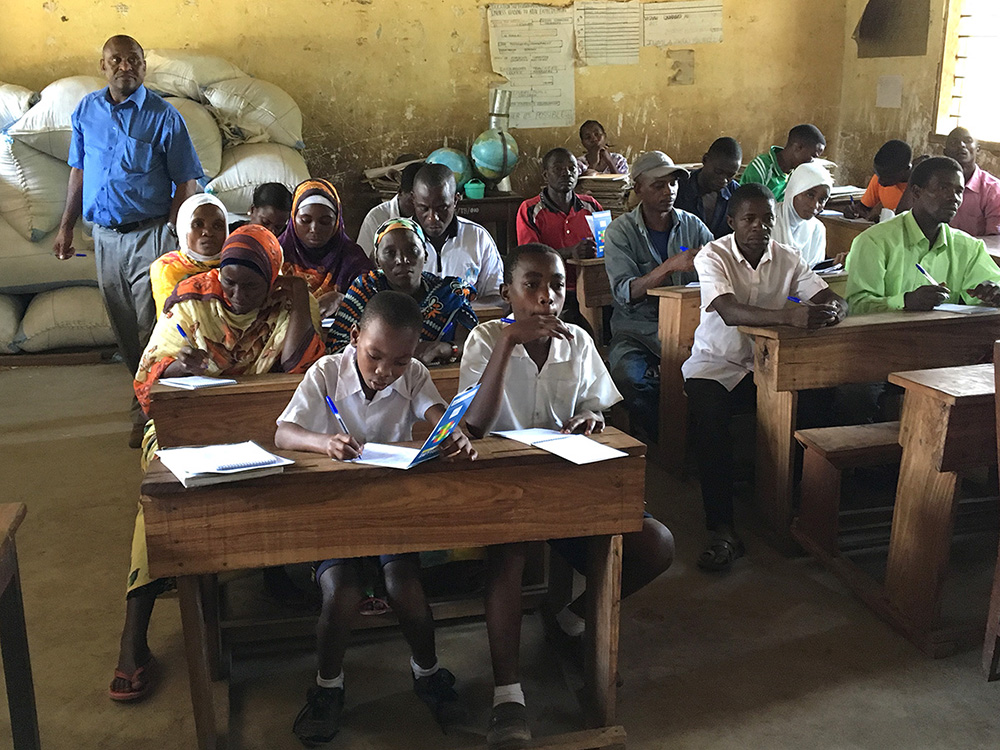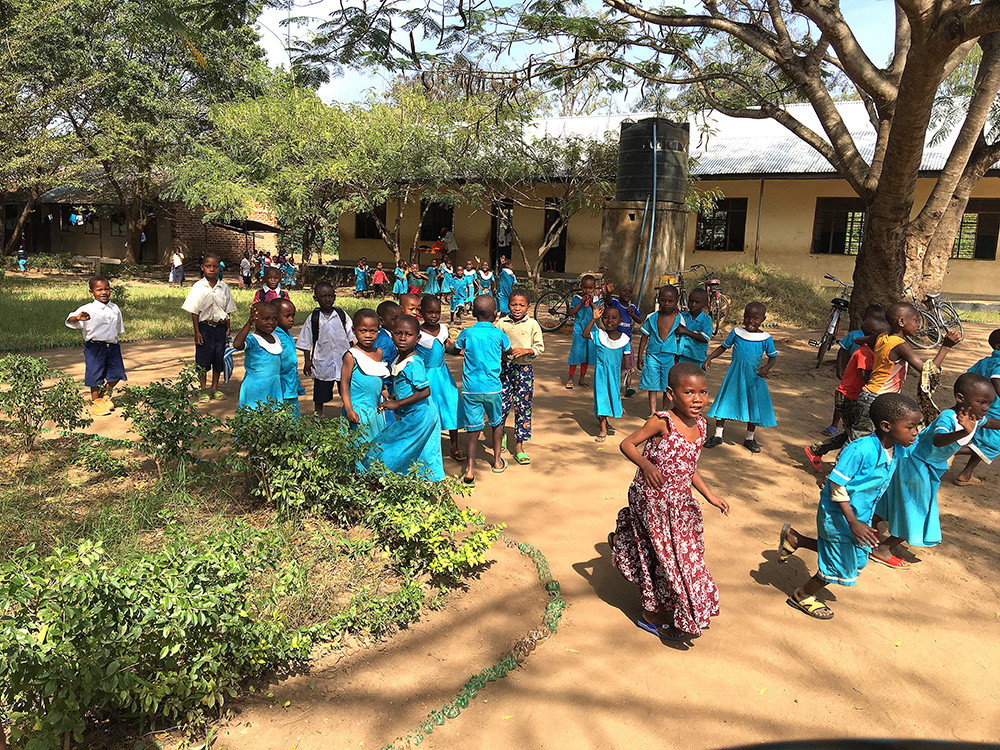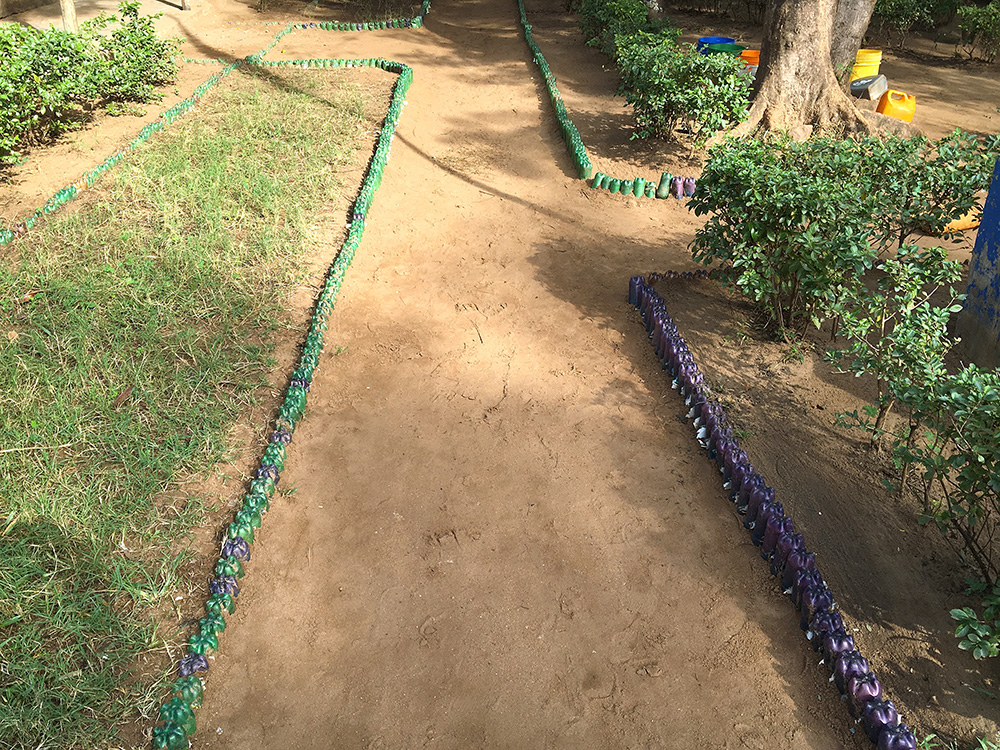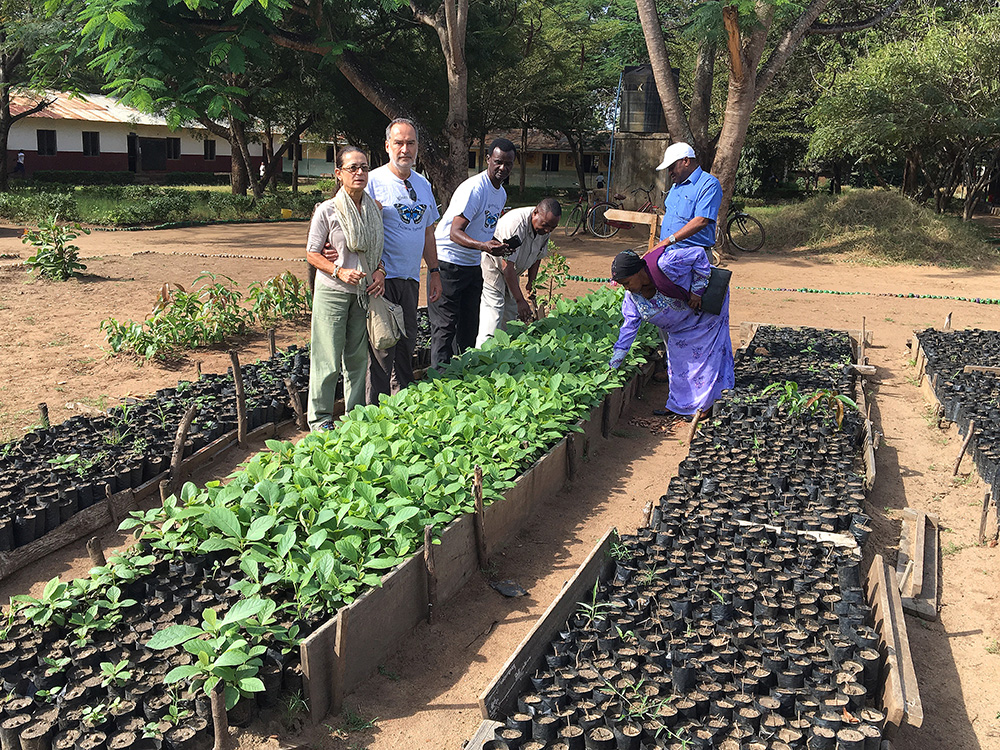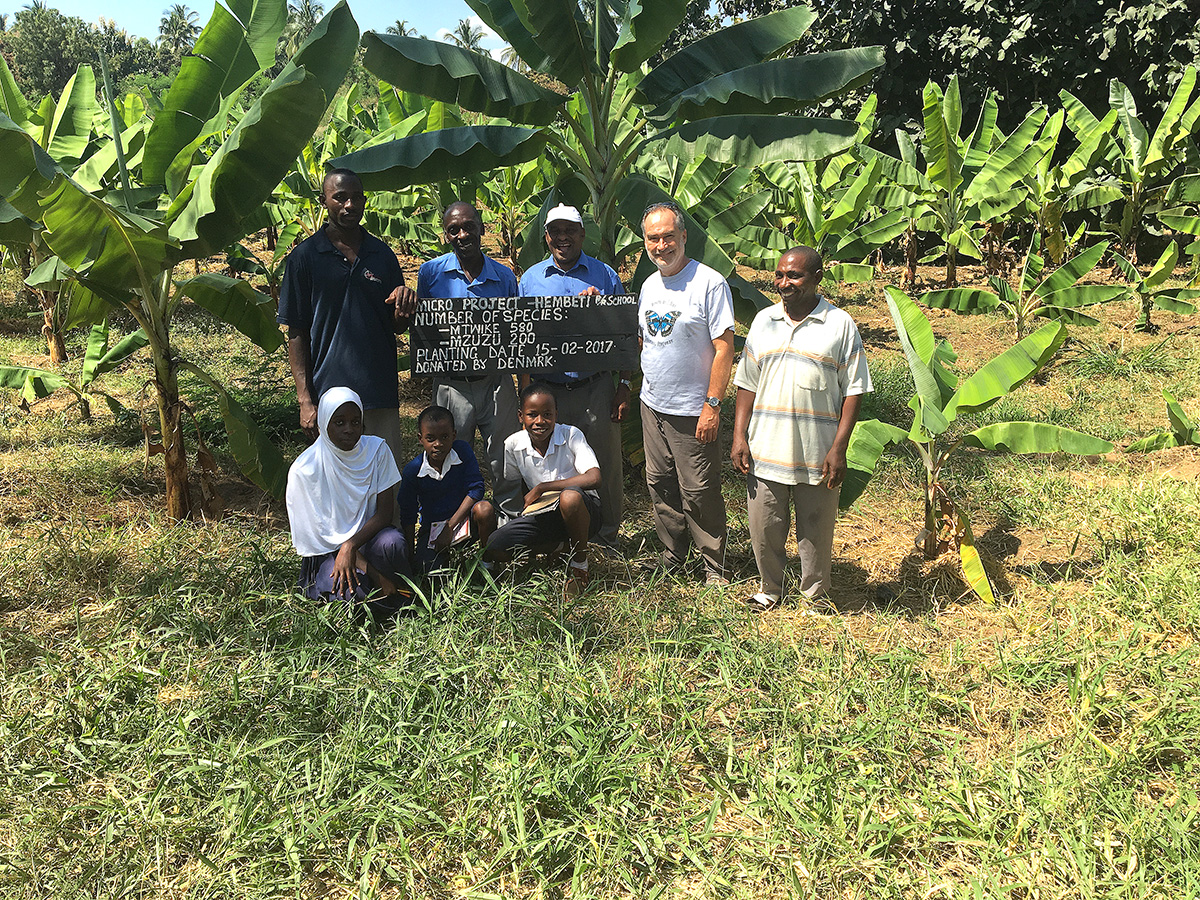On his recent trip to Tanzania, Nikos Petrou, FEE’s Board Member, visited some Eco-Schools projects.
In Mkindo, a village in the Mvomero District of the Morogoro Region in the central-eastern part of Tanzania, students from the Eco-Schools Committee participated in a meeting with members of the village council, representatives of the Parents Association and their teachers, as well as education officials from the Mvomero District. The meeting was held to discuss the challenges the school faces, and to plan the future steps and activities of the Eco-Schools programme. The students in this school, some 800, have elected their representatives democratically. Through Eco-Schools, the children have a voice in matters affecting the school, but also the village and their whole community.
Nikos Petrou also visited Hebeti, where a banana plantation was created in February 2017 with financial support from the Danish Outdoor Council. Even though the 780 trees were planted just six months ago, they have produced crops which are almost ready for harvest. Some of the bananas will be used for school lunches, and the surplus will be sold, generating a substantial annual income that will be used to improve the school buildings and acquire necessary materials. The Eco-Schools Committee will decide on how the money will be spent. Many of the Eco-Schools in Tanzania are implementing these types of micro-projects, which will provide much needed financial support for the schools. Despite the short period of implementation (less than a year for most of them) these simple but effective sustainable development initiatives have attracted the interest of local villagers, and already several have started similar activities.
Furthermore, Nikos Petrou noted that less than a year ago, this lush schoolyard in Lusanga was just bare, dusty earth. One of the first activities of the Eco-Schools Committee was to plant grass and flowers in the yard and playground. They used coloured plastic bottles to delineate the paths in an imaginative form of reuse. The children, guided by teacher Anasali Mamkwe, have also created a nursery, with some 10,000 seedlings, mostly fruit trees, but also Teak for which there is much demand. Many fruit trees have been planted in the school grounds to provide food for the children, but the bulk of the seedlings will be sold to generate income for improving the school. This micro-project has already attracted imitators in the village.


